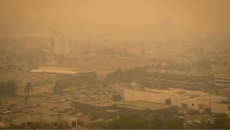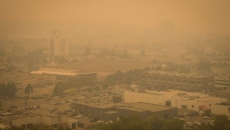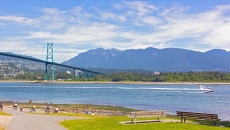1. Meta blocked news content on its Facebook and Instagram platforms in Canada due to Bill C-18, a federal law that requires them to pay media outlets for shared content. What are the consequences for Canadians?
Bill C18 was designed to support the news industry. The print has been in decline for years, facing the loss of advertising to digital platforms, largely Meta & Google. However, it has had the opposite effect as they have lost the 20% to 30% of their audience they would get through FB. News outlets have lost the money they were already getting from deals with FB. Canadians have lost out as they will no longer stumble across the news on Facebook as they keep up with family, friends and their communities.
2. In your opinion, what % of Canadians were engaging with news content by reading or viewing it on Facebook and Instagram?
Before the ban, 29% of Canadians used FB for news. So, even before the news ban, FB was becoming less important to Canadians as a news source. Across all platforms and services, 25% of Canadians use social media for news.
3. Given the situation, what alternatives do Canadians have for news consumption, especially considering that Canadian media encouraged the use of Facebook? What's the next move?
Canadians get their news from various sources: news websites, television, radio, etc. It's wrong to think that Canadians won't know the news because there is no news on FB. However, we are losing stumbling across something that somebody else in your network posted to Facebook that you didn't know you were interested in until you saw it.
4. Supporters of the bill argue that it would address an imbalance between dominant tech companies and Canadian publishers by requiring them to provide fair compensation for disseminating news content via their platforms. Do you agree with that?
The imbalance between platforms and Canadian publishers is all to do with advertising. Google and Meta dominate digital advertising in Canada for 75% of the market. Before the internet, TV and newspapers dominated advertising, but now that money is with Google & Meta. When it comes to news, both platforms argue that news publishers & broadcasters benefit from the posting and sharing of news on Google, Facebook and other services.
5. Meta's move to block Canadian news on its platforms wasn't surprising, given its previous actions in Australia in 2021 when a similar law was proposed. However, the blackout in Australia lasted only eight days, while it has been weeks in Canada with no resolution. Do you see this ban as a threat to Canadian journalism?
The situation in Australia was resolved when the government backed down. While Australia has a similar law, it is not specifically applicable to Meta or Google. Instead, the platforms did their own private commercial deals with news organizations, resulting in a gain of around CAD$175M annually for Australian newsrooms. The platforms oppose regulation and particularly being legislated to pay for news. This is the key sticking point in Canada, as the platforms would rather continue making private deals as they have in the past.
6. British Columbia's Premier, Mr. David Eby, issued a direct plea to the head of Meta as he urged the social media giant to reinstate access to Canadian news on its platforms amid the province's ongoing wildfire crisis. Eby said it feels as though the social media giant is holding BC "ransom" in its ongoing spat with the Feds while it continues to ban news sharing on its FB and IG platforms. What faith can Canadians have in the democratic process?
I can understand the frustration of the Premier. Bill C-18 is a well-intentioned but flawed piece of legislation. There is digital advertising dominance by Meta & Google. But there is also an issue with four companies owning 80% of Canada's media & communication industry. Bill C-18 doesn't address media concentration in Canada and does little to foster a diverse and vibrant journalism ecosystem.
7. In the case of an emergency such as the recent wildfires in Kelowna, what does the ban do to citizens' ability to access information at their fingertips?
The lack of news on wildfires on Facebook is regrettable, but Canadians are resourceful. They will find ways of getting news, especially when the wildfires are the main news item across BC outlets.
8. Blocking of content by Meta on its site is not just limited to news but to any Canadian content. However, in a statement by Meta, the social media giant said if accounts are not sharing news content mainly focused on matters of general interest and current events, they can request a review. How effective will this be?
Meta is using the government's definition of a news organization to block content, meaning outlets that cover news and current affairs of public interest. It is blocking not just Canadian news outlets but also international ones. Some publications have been drawn into the ban, but so far, Meta has been quick to respond to requests to lift the block.
9. How likely is it that this ban will be reversed?
So far, Meta is holding firm in its opposition to the Online News Act. It's important to note that the beginning of negotiations with the platforms on paying for news has been delayed to early 2025. We may be in a holding pattern until then, which is bad news for news consumers and the journalism industry.
10. What is a message you would like to share with the South Asian community in relation to these uncertain times in technology?
More news is available from more sources in more ways than ever before. Meta's actions have shown the importance of making an effort to stay informed and ensuring we know what is happening in our communities.






